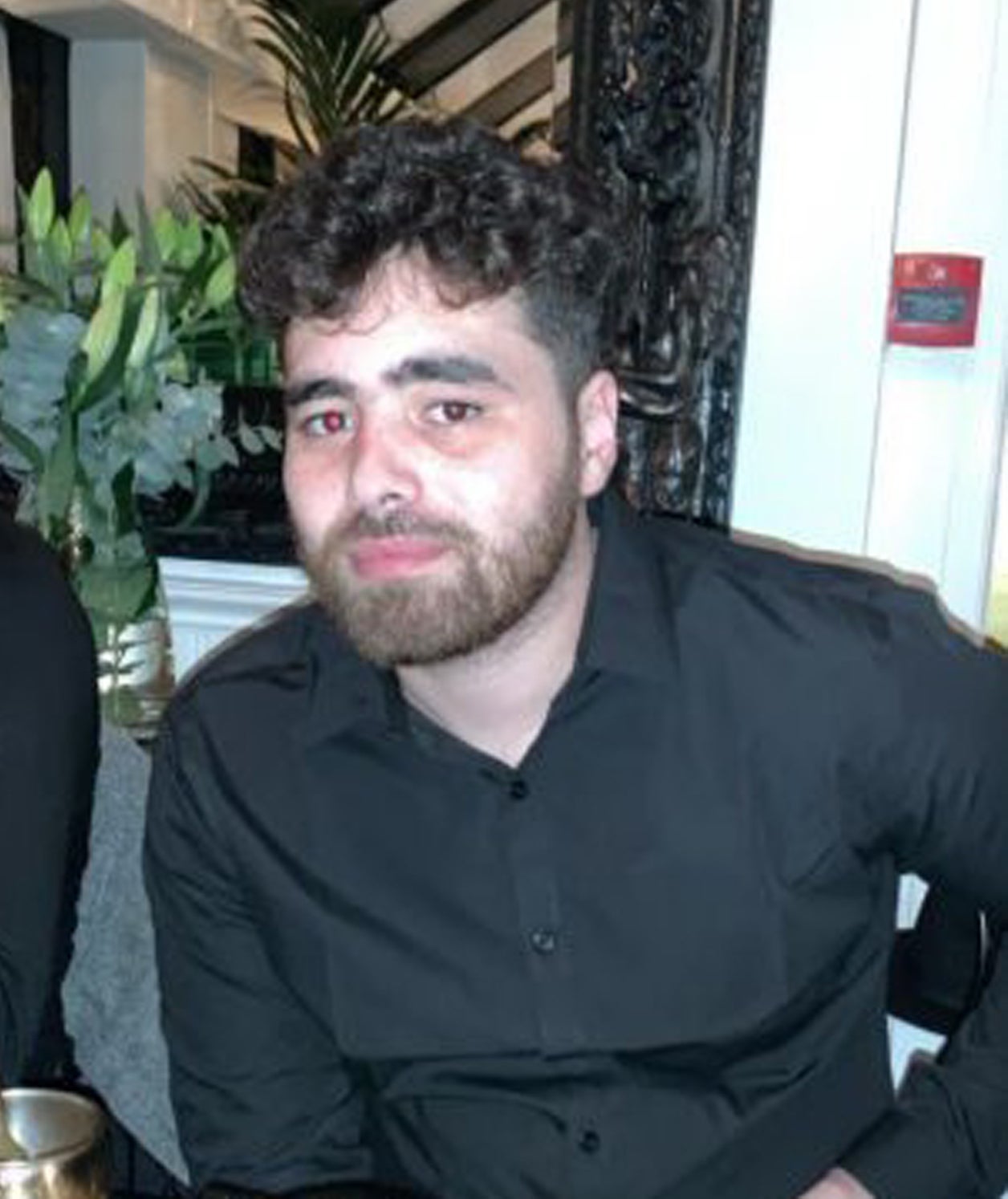‘Billy the Kid’ murder probe goes on despite landmark homeside homicide verdicts
Police have vowed to work ‘tirelessly’ to pursue the killers of gangster Billy McCullagh despite guilty verdicts in a landmark case.

Police have vowed to work “tirelessly” to pursue the killers of gangster “Billy the Kid” despite guilty verdicts in a landmark case.
Billy McCullagh was shot dead by gang rivals as his side’s revenge ride-out ended in “crushing defeat”, the Old Bailey heard.
The 27-year-old was shot twice in the back amid a hail of bullets and died in a street on the Stonebridge Estate in Harlesden, north-west London, in the early hours of July 16 2020.
The court heard that those from the opposing side who fired the fatal shots have yet to be identified by investigators.
However, three of Mr McCullagh’s friends who engaged in the shoot-out with him were prosecuted for his murder.
Billy McCullagh’s family have been left to deal with the devastating aftermath of his murder, knowing that his decision to go on a ride-out led to his own death
A jury deliberated for nearly 28 hours before finding Issa Seed, 25, Adel Yussuf, also 25, and Daniel Mensah, 30, guilty of murder on Monday.
The home-side homicide case is believed to be the first of its kind to be brought in England and Wales.
The convictions were on the basis that the defendants engaged in a shoot-out with the opposition in which both sides agreed to shoot and to be shot at – they fired their own guns knowing it was a virtual certainty that the other side would fire back.
On Tuesday, Detective Inspector Tom Williams, from the Metropolitan Police’s Specialist Crime Command, said the search will go on to find those who fired the fatal shots.
“While these convictions bring this aspect of the investigation to a close, it still leaves a significant part open,” he said.
“We have not identified the person or persons responsible for firing the shots that killed Billy McCullagh. We will continue to pursue lines of inquiry and will work tirelessly to find those responsible.”
Mr Williams said it had been an “extremely complex and distinctly unique investigation”.
“At the centre of it is Billy McCullagh, who was fatally wounded after being shot and left to die in the street by both his so-called friends and those who fired the shots.
“I am not here to judge his motivation for driving with Yussuf, Seed and Mensah into a rival gang area with the intention of engaging in violence – the sad fact is that a man has lost his life in horrific circumstances.
It does serve as a stark reminder of the futility of those who engage in violence; the consequences can be devastating and the outcome of your actions often down to sheer chance
“However, it does serve as a stark reminder of the futility of those who engage in violence; the consequences can be devastating and the outcome of your actions often down to sheer chance.
“Billy McCullagh’s family have been left to deal with the devastating aftermath of his murder, knowing that his decision to go on a ride-out led to his own death.”
Mr Williams appealed to anyone with information about the shooting to contact police or Crimestoppers.
During the three-month trial, jurors heard that Mr McCullagh’s death was part of ongoing gang warfare, with incidents dating back to 2018.
Mr McCullagh was a prominent member of a gang collective identified by red colours and was principally associated with the Harrow Road Boys who were locked in rivalry with the blue side, the Thugs of Stonebridge.
The history of violence between the gangs included three homicides – one of them a case of mistaken identity – and shootings with multiple casualties.
Mr McCullagh travelled from St Raphael’s Estate in Brent in a stolen vehicle with Seed, Yussuf and Mensah armed with at least two guns.
The plan was to launch a “surprise attack” on the rival gang in response for the fatal stabbing of a friend the day before but instead they encountered a “gun fight”.
Jurors were told that bullets “flew in all directions” with at least eight 9mm rounds fired at the stolen Land Rover containing Mr McCullagh and the defendants.
Four bullets hit the vehicle, two rounds went into Mr McCullagh’s back, and one struck Seed in the leg.
Afterwards, Seed was taken to hospital, the vehicle was burnt out, and the guns hidden, the jury heard.
Police pieced together events by a combination of phones, CCTV and forensic evidence.
Seed, of no fixed address, and Yussuf and Mensah, of north-west London, denied wrongdoing but were convicted of murder, conspiracy to cause grievous bodily harm with intent, and possession of a firearm with intent at the end of a three-month trial.
Leeban Farah, 26, of north-west London, who set fire to the Land Rover to destroy evidence, was found guilty of perverting the course of justice.
The prosecution had alleged that weapons used by the gang were handed to George Orji for safe-keeping but were later seized by police.
Orji, 31, from north-west London, was found guilty of possessing an imitation firearm with intent.
The defendants were remanded into custody to be sentenced at a later date.
